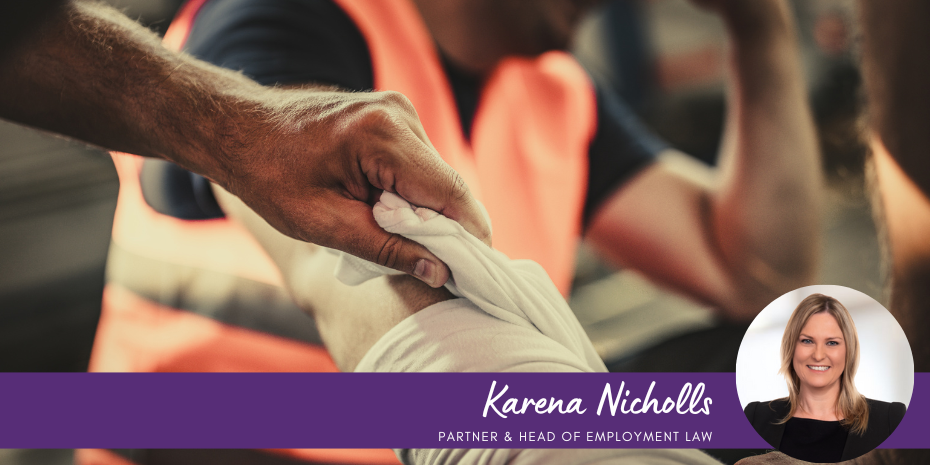KEY TAKE OUTS:
- TPD stands for Total and Permanent Disability insurance and provides benefits where a worker becomes totally and permanently disabled due to an accident or illness.
- Being classified as totally and permanently disabled means that you are unable to work in any occupation or any occupation suited to your education, training or experience or the occupation you had before your disability.
- If you make a claim for Total and Permanent Disability, your insurance will end including any life insurance.
What is Total and Permanent Disability
Total and permanent disability is when a worker is deemed to have total and permanent or partial and permanent incapacity to work in any occupation either because of an injury or illness. Total and permanent disability insurance will pay a lump sum if you are considered to be totally and permanently disabled and unable to work.
Total and Permanent Disability insurance can cover you in the following events:
- Current Occupation – If you are unable to work again in the occupation you were employed before your injury or illness. This type of cover is generally more expensive and is offered by third party insurance providers and is not typically offered within a person’s Superannuation membership.
- Occupation Generally – is available if you are never able to work again in a job suited to your qualifications and experience. This cover can be less expensive than the aforementioned, however there is a higher threshold to reach in order to claim and therefore less likely to be paid out.
Why Should I Have TPD Insurance?
It is important to consider your medical and lifestyle obligations when deciding whether TPD insurance is something you should have. If you were unable to work due to a permanent disablement you would still require money for things such as:
- Living expenses;
- Repayment of debts; and
- Medical expenses
Calculating what is required for these expenses will help you consider what type of TPD cover you need and how much you should be insured for.
It is important to note that most superannuation funds will provide you with TPD insurance while your super is held with them.
Understanding the Eligibility and the Claims Process
Think about the following scenario, you are seriously injure your back on a construction site. You are off work for many months and have to endure several surgeries and associated rehabilitation. Despite all this, you are unable to walk properly, lift or carry things that would enable to do your job as a builder.
Based on the above, you may be eligible to claim on your TPD insurance. To be eligible to receive a TPD lump sum, you:
- Are either a member of superannuation fund containing a TPD policy or a member of a third party TPD insurance provider. It is recommended that you check your policy for eligibility.
- An injured or ill person who has been stopped from working for three or more months.
- Attending upon a medical practitioner regularly and have undergone all reasonable and usual treatment including any rehabilitation specified for the illness or injury.
- Meet the super fund’s insurer criteria of incapacity and unlikely to ever engage in your previous, or any occupation.
- In most cases, you must be able to show that you were able to work for a minimum of 3 months before your injury.
Duration of a TPD Claim Process?
The length of time it takes for a TPD claim will vary depending on the circumstances. Some factors that influence the duration of the claim process is the gathering of medical evidence, the efficiency of communication and cooperation of your doctors and the insurer and the time it takes your insurer to respond.
Generally speaking, a TPD claim will take on average 6 to 12 months to complete.
How much can I expect to receive from my claim, if accepted?
The amount of the lump sum received from a successful TPD claim is influenced by several factors. These factors include:
- Terms and conditions of the policy;
- The severity of the person’s injury or illness and their overall disability; and
- How the disability impacts the person’s ability to work and their quality of life.
On average, somewhere between $60,000 and $450,000 is what you might expect to receive from a lump sum compensation claim. However, you would need to check with your super fund, or your insurer to confirm the exact amount.
What happens when my claim is accepted?
Once your claim is accepted, you will have a few options available as to what to do with the benefit available to you. You can:
- Choose to withdraw the entire balance from your superannuation fund;
- Make a partial withdrawal and leave the rest in your super;
- Keep the benefit in the fund; or
- Transfer the super into another super fund.
There may be certain tax implications depending on what decision you make, so it is prudent to speak with a financial advisor before deciding on how to receive your benefit.
Why would my claim not be accepted?
One of the main reasons why your TPD claim might not be accepted is because the medical evidence provided to the insurer does not meet the insurer’s criteria or there may have been a misunderstanding between you and insurer about what coverage was actually provided.
Other factors that could result in a denial of a claim is that it is found you can work in some form of employment, or you have not met the working requirements such as working for a period of 3 months before the injury.
Why should I get legal advice?
Completing a TPD claim can be a lengthy and intricate process and dealing with insurers can be frustrating and confusing.
At Coutts Lawyers, our approach involves a thorough assessment of each case to provide an informed estimate of potential compensation. We meticulously review the details of the insurance policy, evaluate the extent of the disability, and consider the impact on the client’s life. Our goal is to ensure that clients have a clear and realistic understanding of the potential compensation outcomes for their TPD claims.
Our focus is on providing clear, jargon-free communication, ensuring that our clients fully understand their legal position and options. Our team, skilled in injury compensation law, stands ready to guide clients through the intricacies of TPD claims, offering tailored advice and legal representation. Our expertise in this area is invaluable in guiding clients through the process, addressing challenges, and ensuring that all necessary criteria are met for a successful claim. We provide strategic advice and robust representation, using our extensive knowledge and experience to advocate for our clients’ best interests.
If you or someone you know is considering a TPD claim, don’t hesitate to reach out to Coutts for a consultation. Our team is ready to provide the guidance and support you need to navigate this challenging process confidently and clearly. Contact us today to learn more about how we can assist you with your TPD claim.
For further information please don’t hesitate to contact:
Contact Coutts today.
This blog is merely general and non-specific information on the subject matter and is not and should not be considered or relied on as legal advice. Coutts is not responsible for any cost, expense, loss or liability whatsoever to this blog, including all or any reliance on this blog or use or application of this blog by you.



